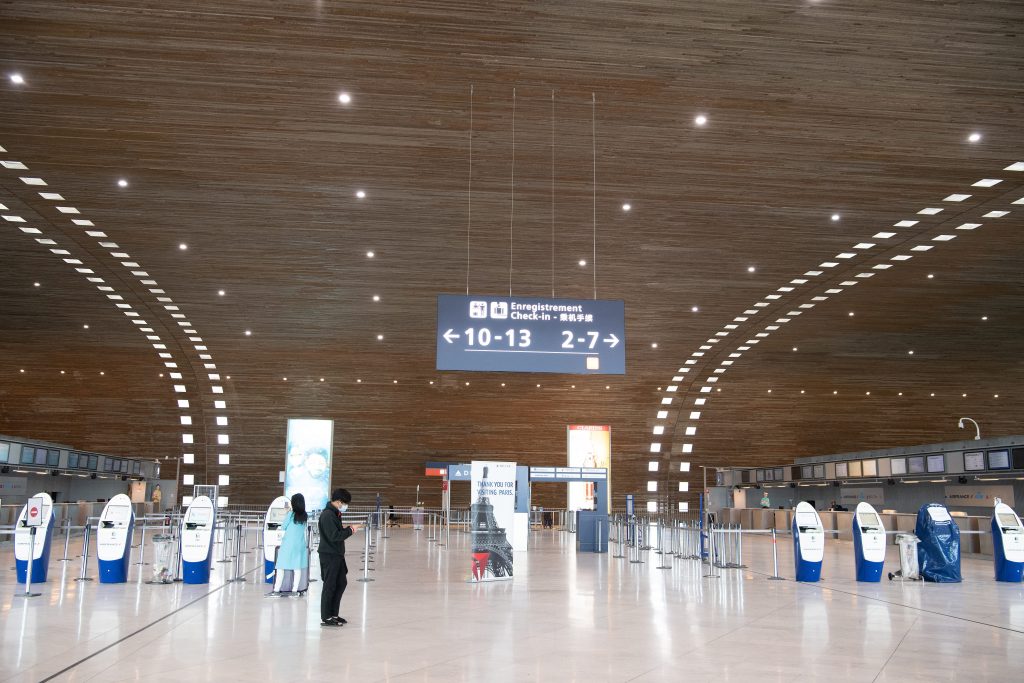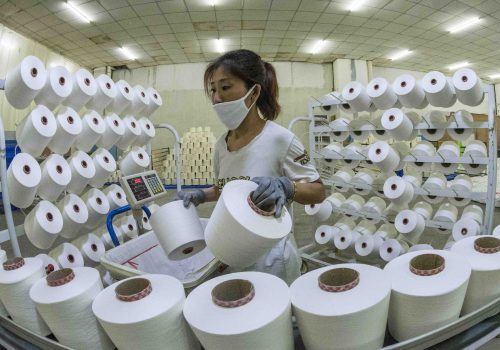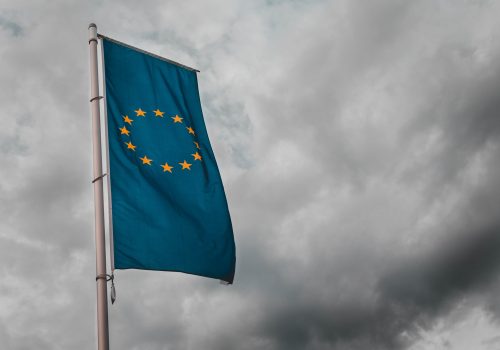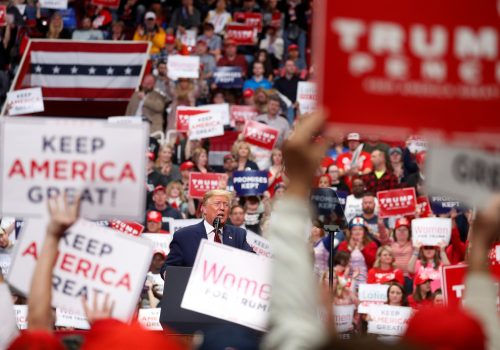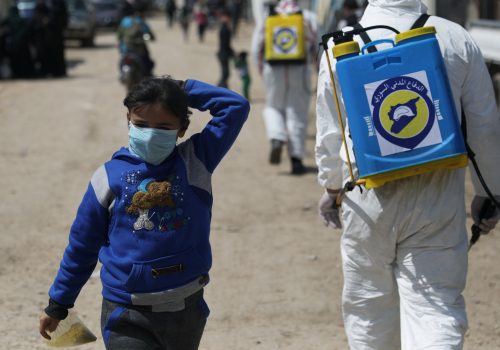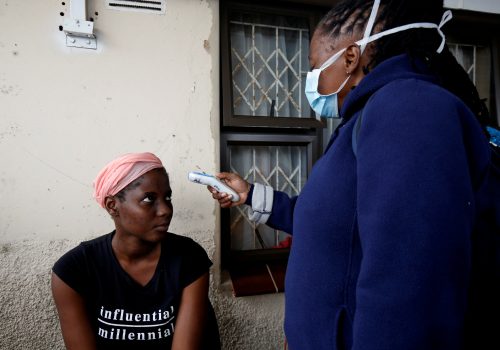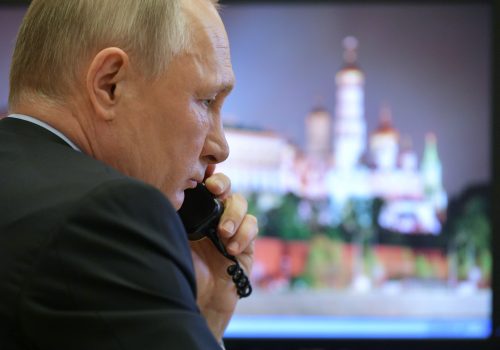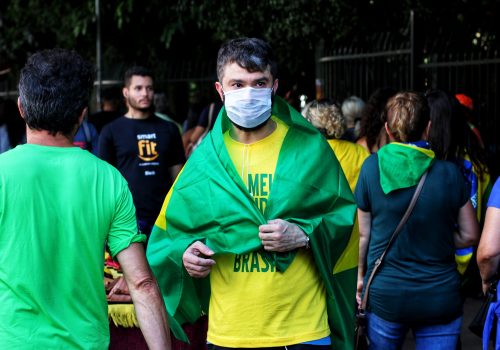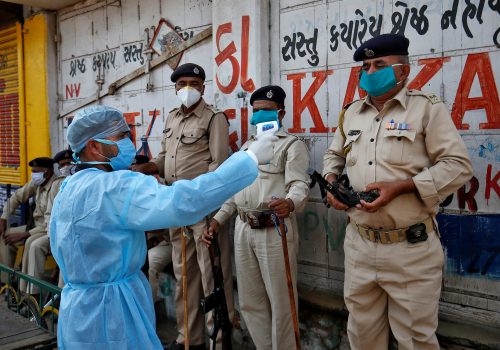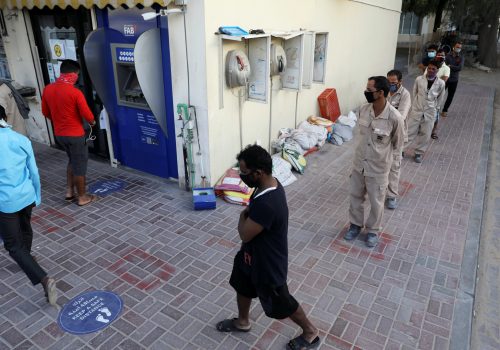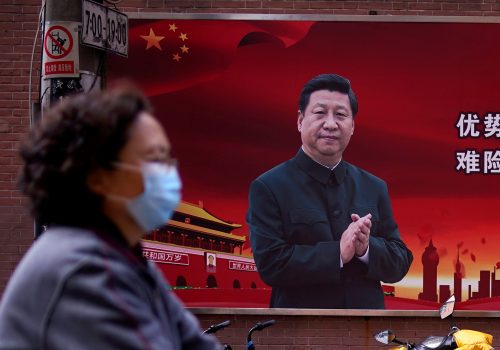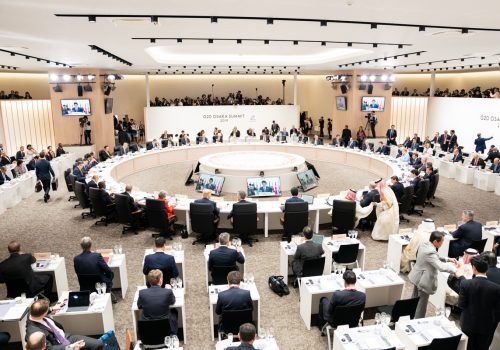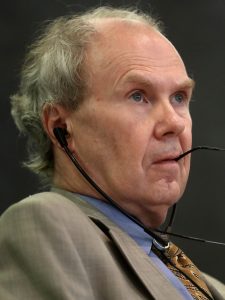The coronavirus pandemic has put US global leadership at stake. Countries are waiting to see how quickly the United States moves past the crisis, whether it takes on the mantle of global leadership in response to the pandemic, and if authoritarian powers, particularly China, more effectively weather the storm.
The global order could, therefore, be fundamentally reshaped by the virus, especially if the world’s major economic powers—the United States, the European Union (EU), and China—suffer an extended economic depression and limit engagement beyond their borders.
The United States also risks a severe decline in soft power if it is seen to be struggling to manage the virus or failing to provide help to partners abroad.
This article is part of a longer paper—What world post-COVID-19? Three scenarios. Download the full paper using the button below.
The US record is not encouraging so far at the high political level.
- Washington did not coordinate its decision to close its borders to most European nationals with their governments.
- Unlike after the 2008 financial crisis, the G7 and G20 meetings have been perfunctory, with every country looking after itself and taking measures to stop the spread of the virus domestically.
At the institutional level, however, the Federal Reserve has been “unshackled,” working with its international counterparts to temper the dollar flight in the developing world and ensure there are enough dollars for foreign businesses.1Gillian Tett, “The Federal Reserve Unshackled,” Financial Times, March 31, 2020, https://www.ft.com/content/01d5f557-4f83-4e58-9ec9-1b7fb1e6d5af.
If there were an international meltdown, such as happened in the 1930s, the US recovery would be that much harder.
The test of leadership will really come once the United States has started its recovery and others in the developing world are still struggling. Will Washington turn back to “America First” or position itself to help those in the developing world who will be hard hit, too? Very little of the $2.2 trillion stimulus package, for example, is dedicated to the international recovery. As of mid-May, United States, along with some other countries such as Switzerland and the United Kingdom, were pushing against the World Health Organization’s proposal for “open licensing of patents and know-how for drugs and vaccines”2Sarah Boseley, “US and UK ‘Lead Push Against Global Patent Pool for Covid-19 Drugs,’” Guardian, May 17, 2020, https://www.theguardian.com/world/2020/may/17/us-and-uk-lead-push-against-global-patent-pool-for-covid-19-drugs. to the dismay of many African leaders who remember having to fight for low-cost HIV/AIDS drugs to be provided to suffering Africans. On the other hand, the EU has taken a position in favor of open licensing while Chinese President Xi Jinping has said that any vaccine “will be treated as a public good.”3David Pilling, Demetri Sevastopulo, and Michael Peel, “US Backs Away from WHO Move on Access to Covid-19 Treatments,” Financial Times, May 18, 2020, https://www.ft.com/content/1a25aeb9-f645-434f-b3e1-4ab62cf5ebed. On May 29, US President Donald J. Trump announced that the United States will sever all ties with the World Health Organization (WHO).
See where US leadership is most vulnerable
Scenarios for a post-COVID world
About the authors
Image: A person wearing protective face mask in an empty Departure Hall at the Terminal 2E of the Paris Charles de Gaulle airport in Roissy, near Paris, France. United States President Donald Trump imposed a 30-day ban on travel from nearly all European countries. Photo by David Niviere/ABACAPRESS.COM
